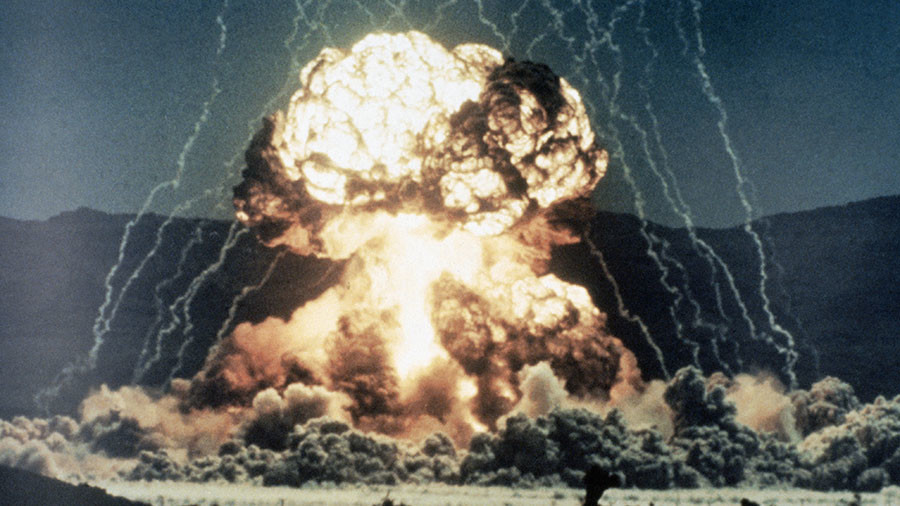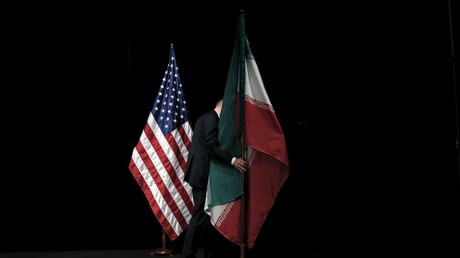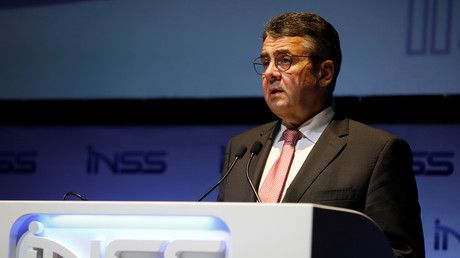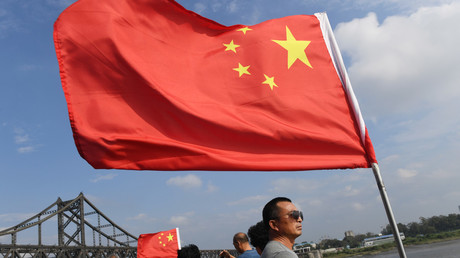Washington’s ‘crackpot’ nuclear posture endangers the world to an alarming degree
Finian Cunningham (born 1963) has written extensively on international affairs, with articles published in several languages. Originally from Belfast, Northern Ireland, he is a Master’s graduate in Agricultural Chemistry and worked as a scientific editor for the Royal Society of Chemistry, Cambridge, England, before pursuing a career in newspaper journalism. For over 20 years he worked as an editor and writer in major news media organizations, including The Mirror, Irish Times and Independent. Now a freelance journalist based in East Africa, his columns appear on RT, Sputnik, Strategic Culture Foundation and Press TV.

Washington’s latest Nuclear Posture Review imperils global security in three ways: it inflates perceived threats to the US, it conflates conventional & nuclear war and it pushes for the development of low-yield nuclear weapons.
These three new moments in US policy increase the risk of nuclear war rather than lowering it, as American Defense Secretary James Mattis claimed in signing off on the Nuclear Posture Review published last week.
Mattis states that the long-term goal of the US is the elimination of all nuclear weapons from the world — but Washington has no intention of ever doing this. That’s because US leaders never cease to view the world as a relentlessly threatening place, justifying a $1 trillion upgrade of the nation’s nuclear arsenal.
The NPR states: “This review comes at a critical moment in our nation’s history, for America confronts an international security situation that is more complex and demanding than any since the end of the Cold War.”
Four specific threats are outlined: Russia, China, North Korea and Iran.
But what’s perplexing is that so little credible detail is presented by the Pentagon to justify why it considers these four entities to be such dire threats, requiring greater US nuclear posturing.
In regard to Russia and China, the NPR asserts (on page 6): “Since 2010 we have seen the return of Great Power competition. To varying degrees, Russia and China have made clear they seek to substantially revise the post-Cold War international order and norms of behavior.”
However, the Pentagon doesn’t provide substantive detail on what this “revision of the international order” by Russia and China entails and why it should be considered by the US a grave security threat.
On Russia, the Pentagon claims: “Russia has demonstrated its willingness to use force to alter the map of Europe and impose its will on its neighbors, backed by implicit and explicit nuclear first-use threats… Its occupation of Crimea and direct support for Russia-led forces in eastern Ukraine violate its commitment to respect the territorial integrity of Ukraine.”
Regarding China, Mattis states in the preface of the NPR that Beijing is “challenging traditional US military superiority in the western Pacific.” Here, the Pentagon is referring to China’s territorial claims to islands in the South China Sea.
These alleged transgressions by Russia and China are repeated throughout the Pentagon’s Nuclear Posture Review, as well as assertions that both countries have moved to “greater salience of deployment of nuclear forces.”
What is disturbing is how the Pentagon has inflated specific local territorial disputes — Ukraine and South China Sea — to constitute somehow a “worsening global threat environment.”
In the executive summary, the NPR states “global threat conditions have worsened markedly since the most recent 2010 NPR, including increasingly explicit nuclear threats from potential adversaries. The United States now faces a more diverse and advanced nuclear-threat environment than ever before.”
At a couple of brief points, the US NPR states that it does not want to have an adversarial relationship with either Russia or China, yet it repeatedly depicts both as a threat. This is consistent with two other documents recently published by the Trump administration — the National Security Strategy, in December, and the National Defense Strategy (NDS), in January — which again called out Russia and China as priority “rivals.” The NDS indeed said Russia and China were now a bigger national security threat than non-state terrorism.
In the latest NPR one quote (page 30) stands out: “Russia is not the Soviet Union and the Cold War is long over. However, despite our best efforts to sustain a positive relationship, Russia now perceives the United States and NATO as its principal opponent and impediment to realizing its destabilizing geopolitical goals in Eurasia.”
Aside from the flagrant deceit over US and NATO encirclement of Russia, again it is noteworthy how vague accusations are somehow made into a sinister threat. The NPR surely ought to say what Russia’s supposedly “destabilizing geopolitical goals in Eurasia” are, but doesn’t.
So are we to believe that Russia’s economic integration with China and other Eurasian neighbors is an illegitimate ambition? Is Russia’s move towards replacing the American dollar in bilateral trade with China immoral? Arguably, such moves are threatening to US hegemony. But they are not acts of war in any reasonable definition.
That’s the thing. It is obvious that Washington is construing political and economic changes in the world — the tendency toward a multipolar order — as a mortal threat to its unipolar ambitions. For Washington, this threat is being transposed into military terms. The problem is not foreign “enemies;” the problem is Washington’s warmongering.
The second perplexing theme in the US NPR is how it conflates conventional and nuclear war. Repeatedly throughout the document, it states that American nuclear forces are to be “tailored and more flexible” as “deterrents” (one could argue “offensives”) “against conventional and nuclear threats.”
With regard to Russia, the Pentagon reiterates the litany of allegations against Moscow that it is acting aggressively in Ukraine and against American allies in Europe, including with “new forms of aggression from cyberattacks.”
Provocatively, the Pentagon declares that “Russian aggression” will “trigger incalculable and intolerable costs for Moscow.”
This is disturbing, to say the least, because the military chiefs in Washington are accusing Russia of what it perceives as “aggression,” while at the same time Washington is saying that it is moving toward “nuclear deterrence” to confront it.
A third area of concern is the explicit go-ahead by Washington for the development of so-called “low-yield nuclear warheads.” The concept of “mini-nukes” has been around for several years, but now the Pentagon is declaring it will pursue development of these weapons. The NPR specified submarine-launched missiles as the sector where the mini-nukes will be deployed.
The dangerous consequence is the notion that a limited nuclear war may be feasible. Thus, a greater risk of “low-yield” nuclear weapons being deployed in action. But the real danger is that the threshold will then be lowered for escalation to strategic weapons of mass destruction.
Taken together, the latest US Nuclear Posture Review presents an alarming deterioration in global security. In stark contrast to the Pentagon’s claims of “raising the threshold” for nuclear war, the latest policy formulation entails a reckless lowering of that threshold.
During the height of the Cold War, the renowned American sociologist C. Wright Mills coined the phrase “Crackpot Realists” to refer to Pentagon war planners and their relentless depiction of world threats as justification for stockpiling weapons of mass destruction.
It is evident from the latest NPR that the Cold War is still being waged, and Crackpot Realists are ever-present in the Pentagon.
As Mills wrote back in 1958: “The absence of an American program for peace is a major cause of the thrust and drift toward World War III.”
Think about that. The risk of world annihilation and the grotesque waste of human resources could easily be solved, if only Washington would engage in peaceful diplomacy with the rest of the world.
The underlying reason for why this does not happen — American-desired hegemony — is why Washington stands condemned.
The statements, views and opinions expressed in this column are solely those of the author and do not necessarily represent those of RT.




0 Comments:
Post a Comment
Subscribe to Post Comments [Atom]
<< Home